- Home
- About ANT
-
Products
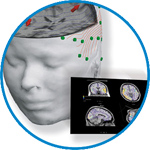
asa
asa is a highly flexible EEG/ERP and MEG analysis package with a variety of source reconstruction, signal analysis and MRI processing features.
.jpg)
eego mylab
The new frontier in multimodal brain research. With up to 16 kHz sampling rate, 256 EEG channels and unique software features, eego mylab gives you an unprecedented in-depth understanding of the human brain.

eego sports
eego sports offers complete freedom to collect high-density EEG data, bipolar EMG signals, and a variety of physiological sensor data, wherever and whenever required, with publish quality data in less than 15 minutes!

waveguard net
The waveguard net sets a new standard for research applications requiring high-density EEG data acquisition with quick preparation time, high flexibility, and subject comfort.
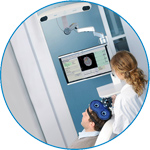
visor2
Our new and upgraded visor2 solutions integrate all the latest technologies for navigated rTMS, dual-coil navigation support, EEG-TMS recordings and pre-surgical evaluation for the highest quality in research and clinical procedures.
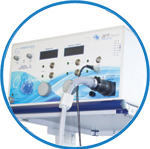
powerMAG ANT
The PowerMAG ANT 100 rTMS stimulator is designed for the specific needs of high-end TMS applications. Powerful high-frequency TMS as well as high precise single pulse and repetitive pulse protocols are combined in one single device.
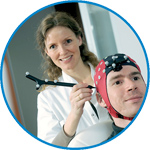
xensor
xensor offers the solution for digitization of 3D electrode positions. xensor takes care of the whole procedure; it records, visualizes and stores positions acquired with a dedicated digitizer.

waveguard original
waveguard original is the cap solution for EEG measurements compatible with fMRI, MEG and TMS system. Use of active shielding guarantees performance in even the most demanding environments.
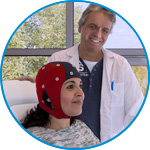
waveguard connect
waveguard connect EEG caps are a perfect match for hospitals and institutes aiming at reliable EEG, maximum uptime and great patient comfort! For optimal signal quality, the electrodes are made of pure, solid tin.
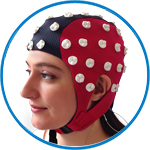
waveguard touch
waveguard touch is a dry electrode EEG cap. The unique Ag/AgCl coated soft polymer electrodes provide stable, research-grade EEG signals while maintaining subject comfort. The combination of these innovative dry electrodes and the industry-leading waveguard cap makes waveguard touch the best solution for dry EEG.
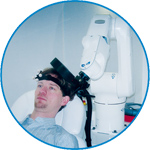
smartmove
smartmove allows planning of a complete TMS session ahead by defining stimulation sites based on anatomical MRI information and functional information like fMRI, PET or EEG/MEG.
Stay - References
- Support
- Events
- News
- Contact Us
You are here
Event-Related Brain Potentials in Psychopathology: Clinical and cognitive perspectives
Event-Related Brain Potentials in Psychopathology: Clinical and cognitive perspectives
Since the discovery of the P300 component, a large number of studies have been conducted with the aim to find abnormalities of this psychophysiological marker among the main psychiatric disorders. The first studies were very promising, but successive findings were rather controversial resulting in two main positions (the pros and the cons) as regard to the usefulness of P300 in clinical psychopathology. However, P300 studies provide interesting findings concerning information processing in psychopathology. Moreover, other Event-Related Potentials (ERPs), such as the Mismatch Negativity (MMN) and the Error-Related Negativity (ERN) are particularly interesting for the study of cognitive processes in psychopathology. In this review, the author will give an overview of the main findings of P300, MMN and ERN values in psychopathology from a clinical and a cognitive point of view. After a brief description of the rationale of ERPs, the findings in schizophrenia, depression, alcoholism, posttraumatic stress disorder, panic disorder, and obsessive-compulsive disorder will be sequentially reviewed. The diagnostic usefulness of P300 in psychopathology is limited, but could be increased if variables known to influence P300 amplitude or latency are controlled. Doubtless, grouping two or more different ERP components would greatly improve the usefulness of the clinical applications of brain potentials. On the other hand, a growing number of studies have provided evidence of the relevance of ERPs to investigate cognitive processes in psychopathology.
For more information, please click here >>

 Read more
Read more.jpg)




